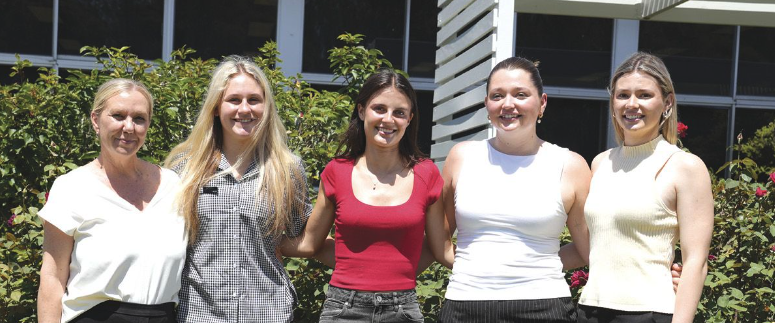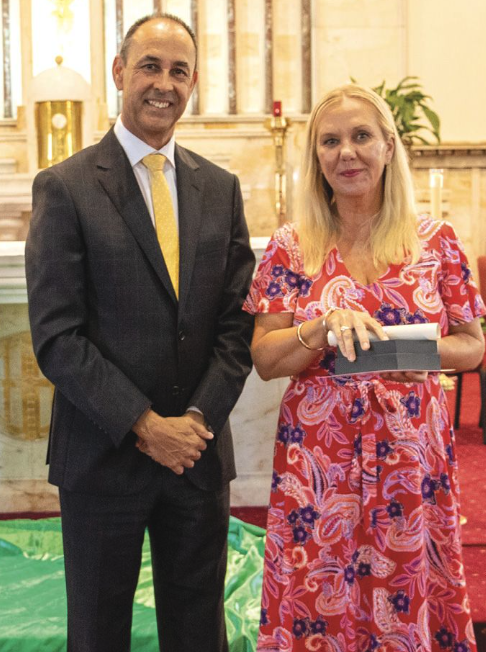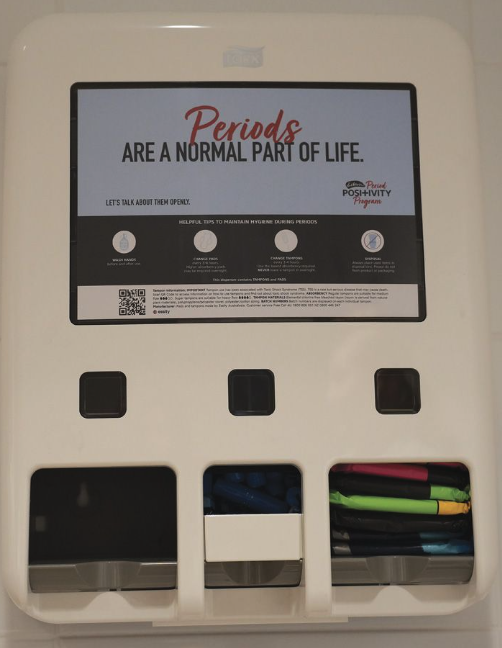Strong launch spurs wider change
Together with the rest of the steering committee, the students created Period Positivity, an initiative focused on access, equity, and dignity. Free pads and tampons would be provided in dispensers in school bathrooms, but the program would extend beyond products, with an education campaign plus policies to promote reproductive health and gender equity.
They launched a pilot program at St Paul’s in Term 4, 2022. It was so successful that Period Positivity was rolled out to the entire Maitland-Newcastle diocese in Term 3, 2023.
By the time Period Positivity was unveiled at St Paul’s, the class who started it all was sitting their HSC exams. They passed the baton to an incoming class, who matched their passion for the project.
Shame, stigma and skipping school
Maddie Ferry was in the new cohort. The day the dispensers were installed, she took a photo and sent it to her sister Charlotte, who had helped make it happen.
“I shed a tear,” Charlotte says. “Because it’s so much bigger than just having tampons.” There are so many more girls, women, non-binary and trans students “who can come to school now and feel safe”, she says. “Honestly, if I talk about it too much, I get emotional.”
According to research from the University of Western Sydney, a lack of support around menstruation means many Australian girls are disadvantaged in educational and extracurricular activities. A 2020 national survey revealed that close to half of all menstruating students regularly stay home from school due to their period.
“The thing that makes me feel upset about students not coming to school because they don’t have access to those products is because it’s such a simple solution,” says Sarah Gardiner, a teacher at St Paul’s and a member of the IEU Executive.
A St Paul’s survey revealed a correlation between absenteeism and a lack of access to products, Holliday says. Some experience “period poverty” – the struggle to afford sanitary goods. But accessibility is about more than cost.
St Paul’s found that many students felt uncomfortable going to the office to request a sanitary item. “You’d whisper it”, says Maddie, “you wouldn’t want anyone to hear you asking for it”. When she was a student, Burns says, “there was a lot of secrecy”. She remembers her peers hiding pads up their sleeves.
Periods have long been a source of shame, but Period Positivity is attempting to destigmatise menstruation. Access to pads and tampons should be as basic as toilet paper and hand soap, Burns says.
The importance of education
Period Positivity “did teach people that it’s not something to be ashamed of”, says Jess Robinson, a member of the 2023 class that led the initiative.
A key focus of Period Positivity is removing the taboo of menstruating. To do that, students need to be taught about the realities of periods, says Robinson, who believes the curriculum isn’t filling the gap.
“We don’t get educated, we get taught,” she says. Girls are told the basics: their uterine wall will shed once a month. But what is really needed is in-depth education about the whole experience, “symptoms, pain, cramps” she says, banging her fist on the table to emphasise each point.







































































































































